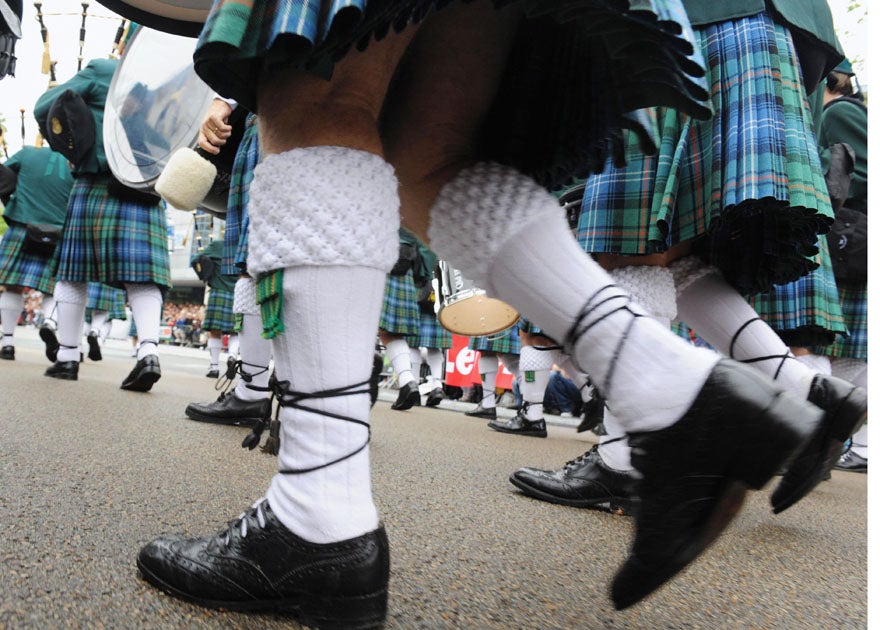
Your support helps us to tell the story
From reproductive rights to climate change to Big Tech, The Independent is on the ground when the story is developing. Whether it's investigating the financials of Elon Musk's pro-Trump PAC or producing our latest documentary, 'The A Word', which shines a light on the American women fighting for reproductive rights, we know how important it is to parse out the facts from the messaging.
At such a critical moment in US history, we need reporters on the ground. Your donation allows us to keep sending journalists to speak to both sides of the story.
The Independent is trusted by Americans across the entire political spectrum. And unlike many other quality news outlets, we choose not to lock Americans out of our reporting and analysis with paywalls. We believe quality journalism should be available to everyone, paid for by those who can afford it.
Your support makes all the difference.
What courses? Celtic language; Gaelic; Irish studies; Cymraeg (Welsh); Welsh history; Celtic civilisation; Cymraeg a’r Ieithoedd Celtaidd (Welsh and the Celtic languages); Cymraeg proffesiynol (professional Welsh)
What do you come out with? BA usually, or an MA if you’re studying in Scotland.
Why do it? Professor Patrick Sims-Williams, head of the Welsh department at the University of Aberystwyth, says there are two main types of students: “Some are from Celtic or formerly Celtic countries and want to get deeper into their heritage while others want to try something exotic; in fact students come from all over Europe and further afield. Most Celtic departments are eager to recruit students to the cause and bend over backwards to make reasonable offers.”
What's it all about? Celtic languages have been spoken and written down in many parts of Europe for over 2000 years, but now they are confined to the British Isles and Brittany. Studying Celtic languages usually includes a study of their rich literature, medieval and modern, and aspects of their culture, including history, art and music. Most courses tend to concentrate on Irish, Welsh or Scottish Gaelic, depending on where the university is located, but some universities offer two or three languages, and Aberystwyth University teaches Breton as well. Complete beginners are welcome and taught in separate streams from first-language students. Contrary to what might be expected, Celtic departments often have an international flavour as it is difficult to study these languages outside the British Isles. In 2001, Cardiff established the Centre for Welsh American Studies in order to promote studies and exchange in the Americas and in Patagonia.
Study options: Usually BAs are three years full-time, whereas the Scottish MAs are four years. Aberystwyth offers a four-year Celtic studies BA, in which you go away for one or two semesters to study in a university in Ireland or Brittany, under the ERASMUS programme. If you’re studying a Celtic language alongside a foreign one, it’s likely that you’ll be able to spend a year working or studying abroad; this is good experience and attractive to employers.
What will I need to do it? Surprisingly, you don’t necessarily need to have studied your chosen language before, although it may help you progress more quickly if you have. At Cardiff, most courses require AAB/ABB. At Aberystwyth it’s CCB, and its course in professional Welsh require an A. At Glasgow, it’s tougher, and applicants who got AAAA in first sitting will receive an unconditional offer; those who got AABB or AAAB may receive a conditional or unconditional offer once all applications have been reviewed.
What are my job prospects? Teaching and translation are both popular choices for graduates, while others find positions in museums, government heritage bodies, publishing and book marketing. Many graduates opt for further study, with over half of graduates opting to pursue postgraduate degrees, according to The Times’ Good University Guide 2012, which is perhaps why only 20 per cent end up in graduate-level positions within six months of finishing. Graduate salaries average around £17,200, but we must be careful to not make sweeping generalisations, as student numbers are so small that tiny changes can skew the whole picture.
Where's best to do it? Cardiff topped this year’s Complete University Guide, followed by Aberystwyth, Glasgow, Bangor and Edinburgh. Students at Glasgow, Cambridge and Bangor were most satisfied.
Related degrees: English; French; history; classics; archaeology.
Join our commenting forum
Join thought-provoking conversations, follow other Independent readers and see their replies
Comments